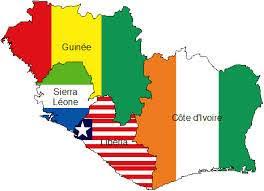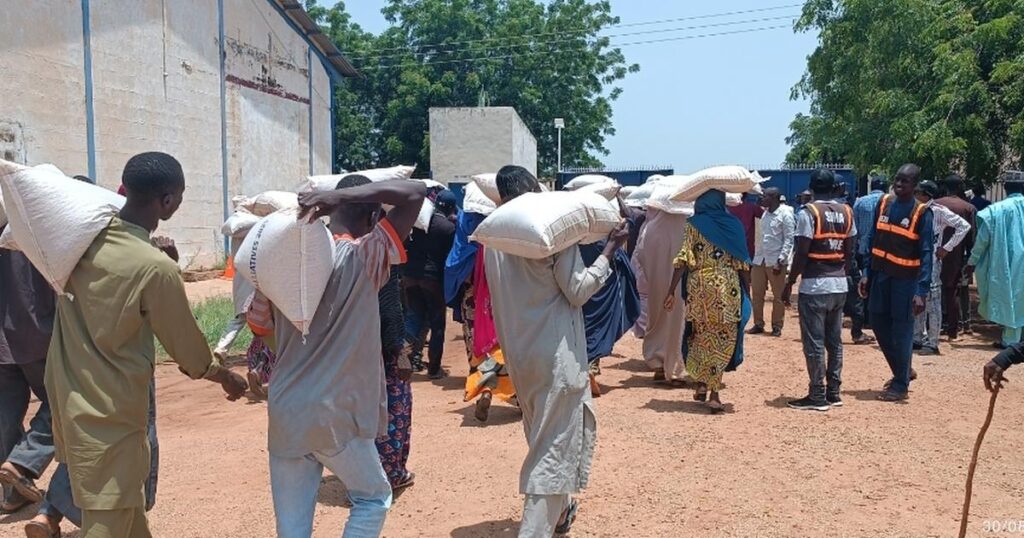In 2022, thousands of Nigerians continue to make their way out of the nation\’s violent scenes. Places once home and sources of livelihood are either deserted, turned into piles of ruin or both. The deserters or survivors of armed groups\’ terror find refuge in displacement camps and host communities within and outside the Nigerian turf, where they face a humanitarian crisis. In the bandits-rampaged northwest Nigeria, the United Nations High Commission for Refugees (UNHCR) \’s report holds that about 71,289 people have been displaced in Sokoto state, leading to border movement of at least 80,900 Nigerian refugees into the Niger Republic between January and March 2022. Within UNHCR\’s review period, the Nextier Violent Conflict Database recorded 175 violent incidents leading to 1,030 deaths and 725 kidnap victims.
Beyond the northwest, over 2.5 million people are displaced in northeast Nigeria and the broader Lake Chad Basin (LCB) by over twelve years of jihadist terrorism. Due to the unending terror incidents, over 35,000 people. About 10.6 million people in the region require urgent humanitarian assistance. The United Nations and partner organisations aim to provide life-saving assistance to 7.8 million of the most vulnerable. Nigeria contributes 4.3 per cent of the 79.5 million global figures, making her one of the top 10 countries with the highest risks of humanitarian disaster. The unending northeast conflict has prolonged chances of a return to normalcy. Continued displacement resulting from the conflict has pushed many residents of the BAY states into extreme margins of vulnerability, especially in displacement camps where they seek refuge and assistance. Many of the northeast displaced population are in overburdened camps where humanitarian crises are profound and basic human necessities are sparse.
Due to the proliferation of violent conflict across the board, several other locations face various challenges. Southeast Nigeria is burdened by \’unknown gunmen\’ terror and secessionist aggression. In the south-south and southwest, militancy and gang war are recurrent. These security issues contribute to safety threats, especially in rural locations. Nigeria\’s rural dwellers fleeing violent scenes and increasing vulnerabilities lurking in ungoverned spaces indicate growing rural and urban pull. Across many rural communities, violent conflicts limit access to farmlands and other agricultural activities, disrupting rural settlements\’ market days and livelihood sources. Violence in Nigeria has contributed to mass movements within and outside Nigeria.
The Nigerian government must take charge of the country\’s troubling violence and humanitarian crises. The gaps in assisting the affected population have created an opportunity for terror groups to deploy make-shift governance and intervention in affected communities. Improving livelihood support in conflict zones will help mitigate the vulnerabilities residents face. However, communities must be safe from terror attacks to achieve these gains. Therefore, security interventions should run concurrently with sufficient humanitarian interventions for crisis-impacted communities. Beyond stability, the government must win the hearts and minds of people through development assistance and efforts to help them rebuild their lives.
Social inclusion is necessary to manage human migration. Implementing social programmes predicated on inclusion will help ensure social services are available to people regardless of where they reside in the country. Creating safe cities includes social inclusion, which implies social integration and cohesion. It enables a wide range of stakeholders to make the best of the city\’s opportunities and participate actively in decision-making. Nigerians fleeing from violence should be able to access life necessities wherever they seek refuge. Therefore, the Nigerian government should mobilise development organisations to increase and harmonise humanitarian assistance in the crisis hotspots.
Managing non-state armed groups\’ violence should focus on the causes and effects. Government should increase military operations in the zones affected by terror. The security measures should include reclaiming terror groups\’ strongholds and re-establishing the government\’s presence in the ungoverned spaces. Greater and more efficient military responses will preserve lives and prevent the impact of lost livelihood opportunities for the local population. Safety and stability in the affected areas will help to prevent the need to flee from violence. Impacted livelihoods and denied opportunities due to insecurity will deepen socio-economic and development deficits in the regions. Timely and adequate security responses will secure the areas from further ruin and set the pathway for sustainable recovery and development.


